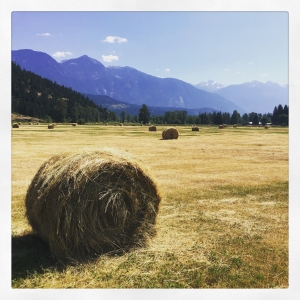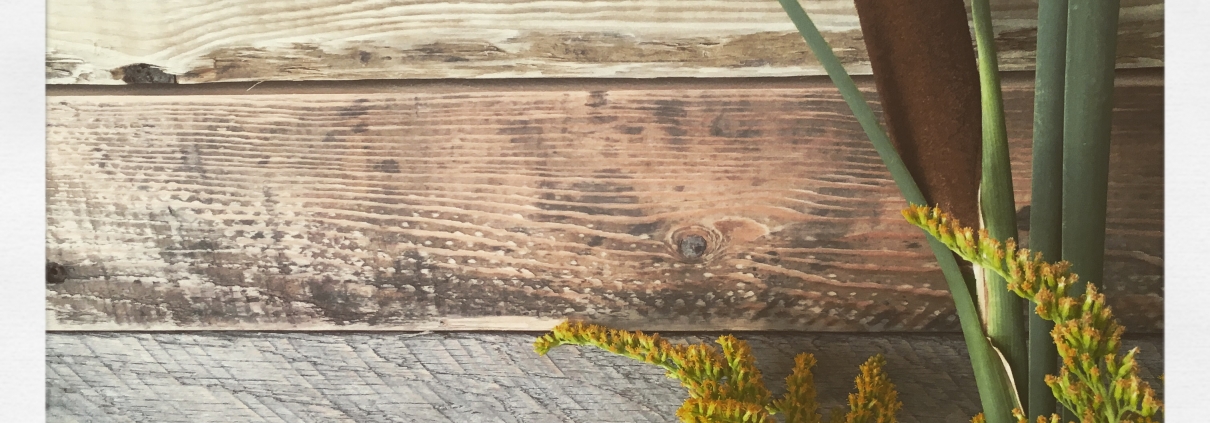Honouring Lughnasadh: Celebrating Abundance & Impermanence
August breaks my heart every year. Its ripe beauty cracks me open without fail, for it is such an achingly gorgeous month. A time of heat and harvest, earth and fire. The beauty of this month goes beyond the superficial for me. It is not just the blowsy wildflowers and golden light that makes it so precious, rather it is the knowledge that this perfect moment is fleeting. Like summer love. August is a time of bare skin, passion pledged beneath a sultry moon, and raw delight. It is a month that asks us to receive its gifts with open hearts, and open hands, knowing this moment of fullness cannot be grasped. In this way, August teaches me of impermanence, again and again, every single year.
The Celtic feast of Lughnasadh occurred at the very beginning of August and is often said to be in honor of the god Lugh, or perhaps more correctly it is the festival that Lugh dedicated to his foster mother Tailtu. In Ireland, it is said that Tailtu died of exhaustion after clearing the lands for agriculture. Understood in this context we could perhaps look at this feast as a celebration of the first harvest as well as an honoring of the sacrifice it takes to provide us with such sustenance. Our great mother Earth gives us her all in offering up the abundance of the summer season, and her generosity begs to be appreciated.
The Anglo –Saxon name for the harvest feast at the beginning of August is Lammas, which means, “loaf mass” and celebrated the first grain harvest. There were many ritual practices around the ceremonial cutting of the grain at this time and harvest loaves were baked for the celebrations. Modern Wiccans and neo – pagans often make corn husk or grain dolls at this time in honour of the Grain Mother, an ancient agricultural goddess who has existed in many cultures and has many names such as Demeter (Greek), Ceres (Roman), Bhumi (Hindu), Chicomecoatl (Aztec), Onatha (Iroquois), Pachamama (Incan).
first grain harvest. There were many ritual practices around the ceremonial cutting of the grain at this time and harvest loaves were baked for the celebrations. Modern Wiccans and neo – pagans often make corn husk or grain dolls at this time in honour of the Grain Mother, an ancient agricultural goddess who has existed in many cultures and has many names such as Demeter (Greek), Ceres (Roman), Bhumi (Hindu), Chicomecoatl (Aztec), Onatha (Iroquois), Pachamama (Incan).
Even though I did not grow up celebrating Lughnasadh or Lammas, I have honored it in my own practice of sacred time keeping each year since I was a young woman. It simply made sense to me from the first moment I heard about it. We should have a feast day that celebrates late summer and its abundance. Why don’t we? It has always felt like the perfect time of year to pause after our spring and early summer labors. The perfect time in which to honor the gifts of this season before the hard work of the fall harvest begins.
Another reason this time of year is important to me is that it also marks the birth of my son. He was born on August 3rd, in the middle of a heat wave, and each year at this time I am reminded of what it felt like on that day to wake up at dawn, knowing my babe was coming. I slipped out of my sister in law’s house before anyone else woke up and walked down to the community gardens at the bottom of her street so that I could have a moment to myself in what I knew was going to be a long and arduous day. I remember feeling frightened and excited. Longing to finally meet this child I had carried for so many moons and yet nervous about how I would meet the challenge of labor. All of these emotions swirled through me as I walked amongst the nodding yellow sunflowers, snaking summer squash vines, and ripening apple trees. I can still remember the taste of the ripe blackberries I ate in between my contractions. I savored their juicy tartness as I counted the minutes in between the birth pangs and wondered how much stronger they might become. Nova was born in the golden light of early evening, right at that moment in the day when the intensity of the summer heat begins to fade and a soft breeze comes up to quiet our hearts as night approaches. I remember lying with him in my arms, feeling grateful I had made it through the first of many initiations that motherhood would bring. I knew there was hard work ahead of me, and yet in that moment, I was content to relax and celebrate the gift of what we had brought forth.
This time of year holds all of this for me- a reverence for the natural beauty of the season, memories of a lifetime of summers past, and hints of a much deeper memory- perhaps a remembrance of how my distant ancestors may have paused in their own labours in order to celebrate this moment in time. This year I will be honoring the feast days of Lammas/Lughnasadh by making time to sit around the table with my family and enjoy a meal together. This will be a meal in which we will eat foods harvested from our own garden along with foods from local farmers whose efforts feed us all year long. We will take our time at this meal and share stories. We will laugh, and raise toasts to each other, and as the sun goes down we will gaze at the leafy trees outside our dining room window, remembering that their branches will be bare in a few months time. We will feel the precious impermanence of this season in the very depth of our bones, and our hearts will swell with tender joy.






